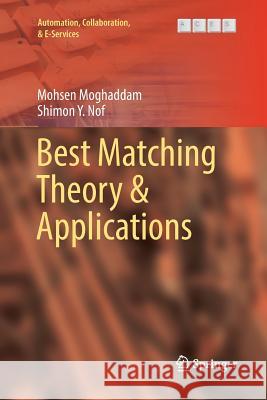Best Matching Theory & Applications » książka
topmenu
Best Matching Theory & Applications
ISBN-13: 9783319834337 / Angielski / Miękka / 2018 / 231 str.
Kategorie:
Kategorie BISAC:
Wydawca:
Springer
Seria wydawnicza:
Język:
Angielski
ISBN-13:
9783319834337
Rok wydania:
2018
Wydanie:
Softcover Repri
Ilość stron:
231
Waga:
0.36 kg
Wymiary:
23.39 x 15.6 x 1.35
Oprawa:
Miękka
Wolumenów:
01
Dodatkowe informacje:
Wydanie ilustrowane











